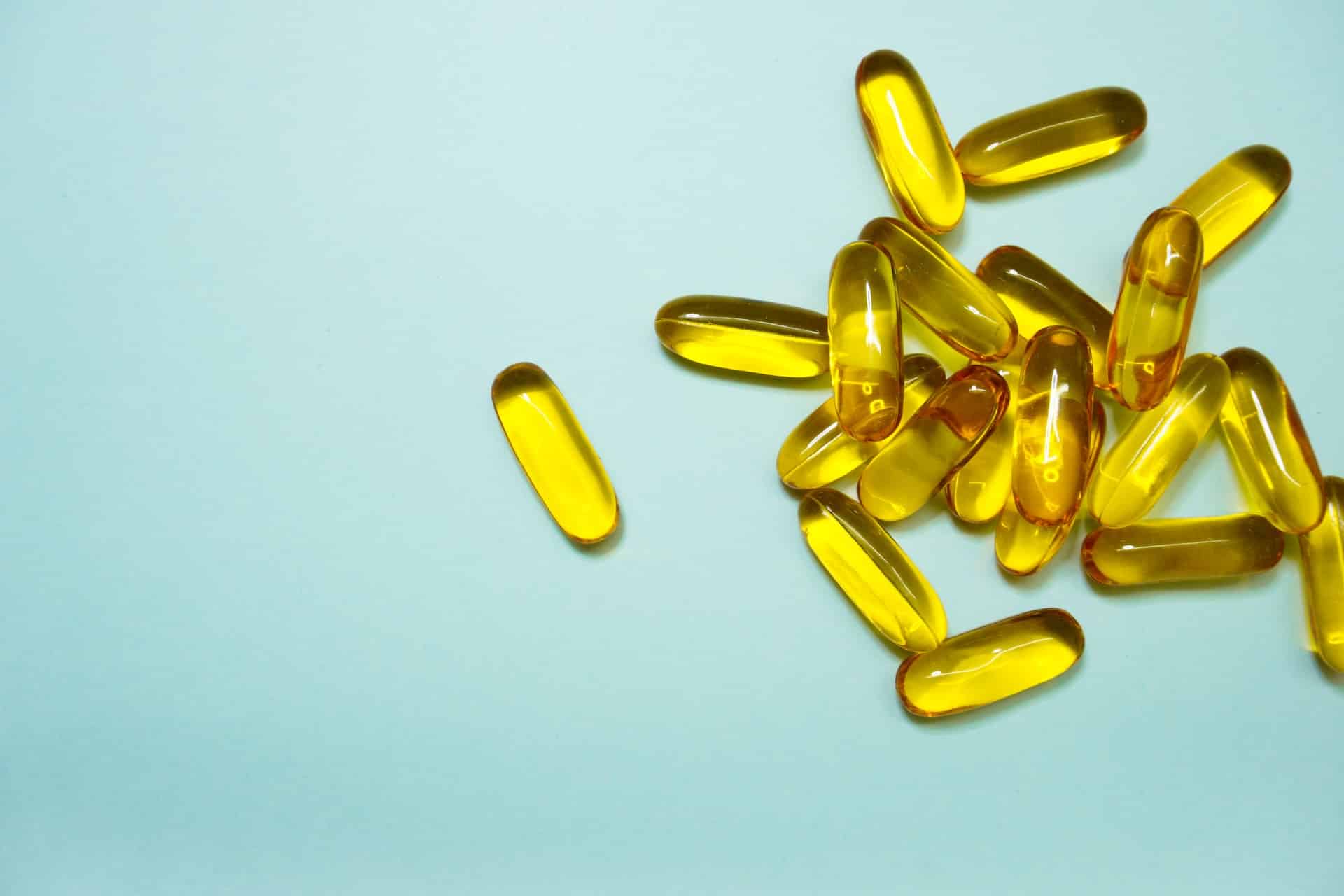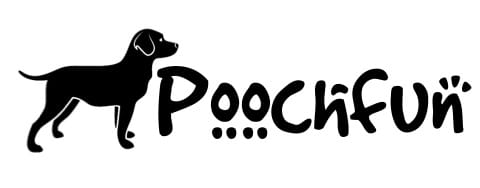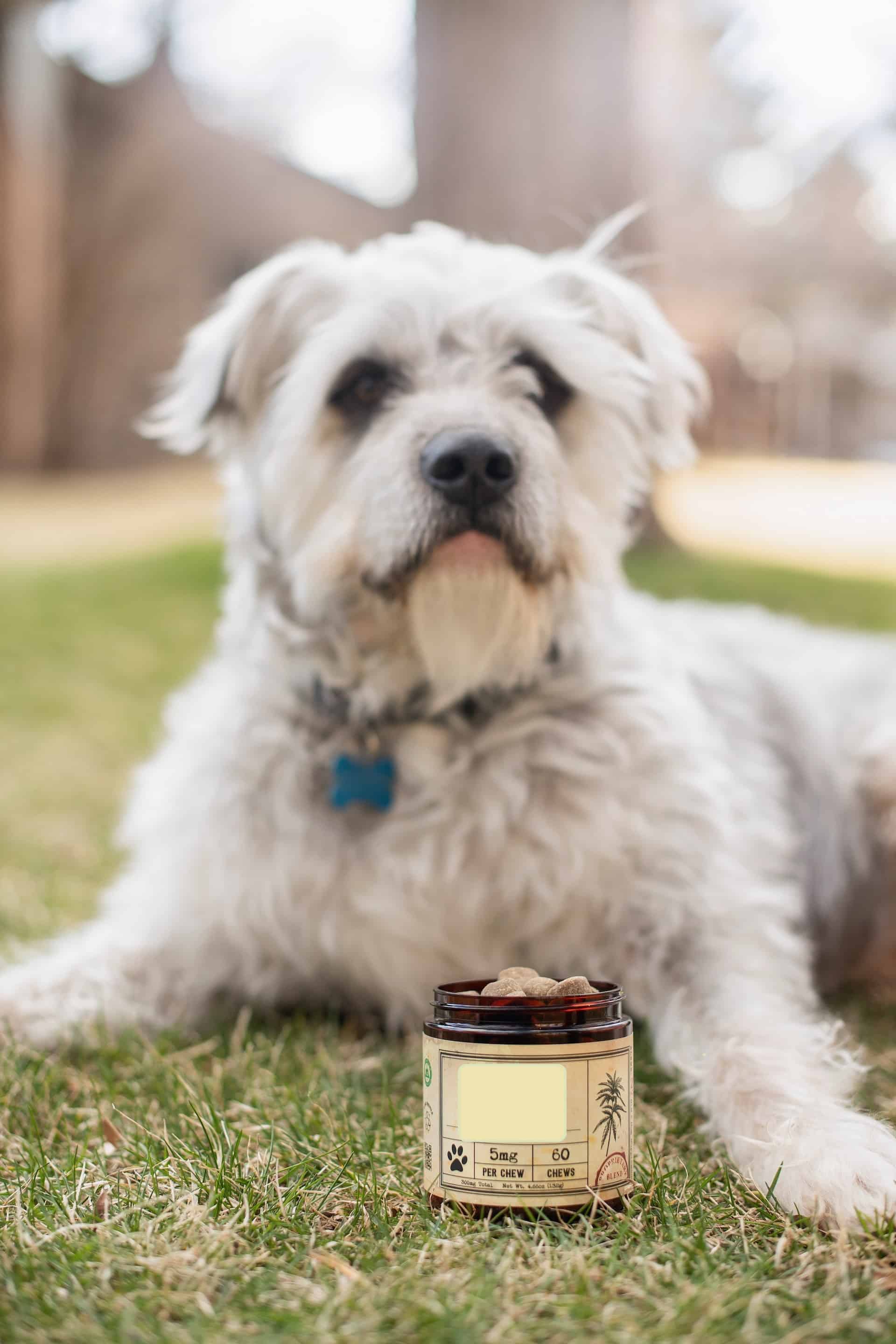Skin & Coat Supplements for Dogs
As pet owners, we understand how vital it is to care for our pets on the inside, but it’s equally crucial to care for them on the outside as well! You can accomplish both with dog skin and coat vitamins.
Not only do they nourish your dog’s skin and coat, but they also provide immune system support and other dog vitamins. There are a variety of dog skin and coat supplements available to fit your pet’s preferences and tastes.
For starters here are a few:
American Journey Salmon Oil
Supplement your dog’s diet with American Journey salmon oil for further skincare benefits. It is prepared from wild-caught salmon and contains DHA and EPA, which can promote the health of your dog’s skin and coat. Simply squeeze the bottle, measure the appropriate amount (measurements will be printed on the bottle), and mix it with your dog’s favorite food.
Nutravet All-In-One
If your dog prefers a chewable dog supplement, Nutravet All-In-One chews not only support your dog’s skin and coat health but also aid in digestion and provide extra vitamins and minerals. This supplement is formulated with numerous omega-fatty acids to promote healthy skin and a lustrous coat.
Diatomaceous Earth Powder
If you’re seeking an organic option for your dog’s skin and coat, Diatomaceous Earth powder could be an excellent choice. This diatomaceous earth powder is composed of 99.9% pure silica and has no additions or chemicals. It is simple to administer the powder to your dog; simply measure the necessary amount (given on the bag) and add it to your dog’s dry or wet dog food. This powder is intended to support the health of your dog’s coat, metabolism, appetite, and digestive system.
There are different vitamins and supplements for dogs that can help take care of them inside and out. There are vitamins for dog eyes, supplements for dog teeth, supplements for dog anxiety, and many other ways to help your dog stay healthy.
Dog Supplements for Itchy Skin
Some of the best supplements for dogs with itchy skin are fish oil, omega fatty acid, digestive, and all-around immunity boosters. Anti-inflammatory compounds are found in a lot of skin supplements for dogs. These help stop itching and irritation. Try giving your dog a salmon oil supplement or one of the many antioxidant-rich skin and coat supplements for dogs.
Dog Food for a Healthy and Shiny Coat
Dogs are fun to pet, especially when their skin is healthy and their fur is shiny. But some dogs have skin that is itchy and flaky and coats that don’t look good. How can you make your dog’s coat shine again?

Essential Fatty Acids: Key to a Healthy Coat
Healthy fats are essential for keeping your dog’s coat in good condition. Fortunately, few dogs develop dull coats as a result of nutritional inadequacies, though vets do see such cases on occasion.
“With the ready availability of quality pet foods, it is very difficult for a pet to have a nutritional deficiency of any kind,” says Wendy Brooks, DVM, an American Board of Veterinary Practitioners diplomate. She also owns the Los Angeles-based Mar Vista Animal Medical Center and is the educational director for the website VeterinaryPartner.com.
According to Florida veterinarian Dawn Logas, DVM, a diplomate of the American College of Veterinary Dermatology, reputable commercial dog meals often provide adequate nutrients, including vital fatty acids, to maintain good skin and a lustrous coat.
On the other hand, dogs who eat low-quality commercial dog food or homemade diets that aren’t well-balanced, like a dog who eats mostly chicken, may not get enough nutrients to keep their skin and coat healthy.
Low-fat diets are risky, too. “The obvious coat problems from deficiencies would be a dandruffy, dull coat from an omega-6 deficit if the pet is eating an extremely low-fat diet,” Brooks says.
In fact, puppies with very low-fat diets get coarse, dry hair and sores on their skin that are easy to get sick from.
But a dog’s diet isn’t the only thing that can cause itchy skin and a dull coat. Dogs can lose oil from their skin if they scratch a lot or get washed too often. Even though these dogs don’t have a real nutritional deficiency, the problem can often be fixed with supplements. “I see a lot of dogs whose diets could probably use more fats,” says Logas.
Omega-6
“Most dog foods, fortunately, are very high in omega-6 [fatty acids],” Logas says. “Those in themselves can be helpful just to give a shine to the coat, add some luster back, and help replace the oils in the skin.”
Omega-6 fatty acids can also be found in vegetable oils. Omega-6 supplements can be bought at pet stores, but Logas says that sunflower oil or safflower oil will work just as well. She says to mix in one teaspoon of oil per meal for a small dog. Give one tablespoon per meal to a large dog.
Just make sure the oil is fresh. Logas says that oils that have been kept for too long can go bad and lose their effectiveness.
The same is true of dog food with essential fatty acids, which can turn rancid when exposed to air. Logas says, “You don’t want to have dog food open and around for months and months.”
Omega-3
Dogs with skin problems can also benefit from omega-3 fatty acids.
“Omega-3s have other beneficial effects for skin problems,” Logas says. “They have very good anti-inflammatory effects, so we use them for dogs that have allergies or other inflammatory skin diseases.”
Fish oil and flaxseed oil are both excellent providers of omega-3 fatty acids. To alleviate irritation or inflammation of the skin, owners should seek out supplements containing EPA (eicosapentaenoic acid) and DHA (docosahexaenoic acid).
Supplements come in liquid or pill form. Brooks says she likes the liquid form because it gives her more control over how much to take. Logas likes capsules because they keep oils from turning rancid when they are exposed to air.
But if a dog won’t take a capsule, some brands have snip tops that let owners cut the capsule and pour the oil onto food.
Logas says to be careful about giving too many fatty acid supplements. She says that too much can be “too rich” and cause dogs to have upset stomachs and throw up.
Brooks says that about six weeks after a dog starts taking omega-3 supplements, the skin and coat should get better.
Other Supplements for Healthy Skin and Coat
There are many other supplements in pet stores that claim to improve the health of the skin and coat. Logas says that people used to think that brewer’s yeast and garlic were natural ways to get rid of fleas. But, she says, “it really doesn’t have any effect.”
In fact, she warns about taking too many supplements. “People want to add in a lot of other vitamins” for their pets, says Logas. This may be because people are interested in taking vitamins themselves. “Really, there’s not a lot of evidence that it does much to help just a dog who has more or less a normal coat,” she said.
But supplements can help dogs with certain skin diseases. For example, a lack of zinc can make the skin crusty. Also, dogs with seborrhea, which is scaly skin, may need more vitamin A.
Brooks and Logas say that the best thing to do before giving your dog supplements is to talk to a vet. For example, giving too much zinc or vitamin A for a long time can make things worse.
Frequently Asked Questions:
Is there a supplement for dogs with dry skin?
Dogs with dry skin can take a lot of different supplements. Some supplements for dry skin in dogs may include fish oils, omega fatty acids, flax oil, EFA, and other natural ingredients that help keep the skin hydrated and healthy.
How do I make my dog’s coat shiny?
By giving your dog a skin and coat supplement every day, you can make his coat shiny and healthy. Many supplements for dogs’ coats have ingredients that make the coat shine, like fish oil or collagen. You can choose a soft chew that is easy to take or a tasty food topper. You can also choose a tablet or soft gel.



